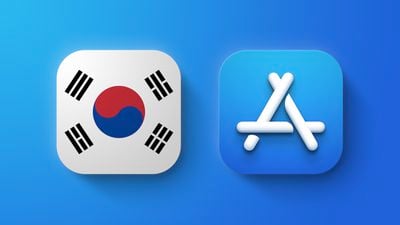Apple's South Korean headquarters have been raided by antitrust regulators after a complaint was raised by developers that it is charging them over the standard 30% App Store commission rate.

The dawn raid by the Korea Fair Trade Commission (KFTC) was reported by local media on Monday and covered on Friday by the Foss Patents blog, highlighting the ongoing investigation in the country into Apple's alleged abuse of market power.
The complaint that sparked the raid was reportedly brought by mobile game developers who argued that Apple charges more than the typical 30% commission rate for purchases made in the App Store.
As Foss Patents points out, Apple charges 30% of the price paid by end users, which includes value added tax (VAT), making it 10% higher than the amount on which Google bases its 30% commission, which doesn't include VAT. Apple is therefore collecting 33% (30% of 110%), not the headline 30% rate.
The above also comes into play for the 15% rate applied to small businesses or to subscriptions in the first year: Developers in Korea get charged 16.5% because Apple collects the commission on the gross price which is inclusive of VAT. The additional 3% reportedly amounted to approximately 345 billion won ($240 million) in the period from 2015 to 2020.
It's a similar story in other countries where Apple operates including France and Italy (32.1%), Turkey 35.25%, and the UK (31.5%) when tax is taken into account, although no-one has yet lodged a formal complaint about the practice in any of those countries.
The development means Apple is now being investigated by two Korean government agencies. In August, the Korea Communications Commission (KCC) said that it had conducted an inspection of Apple, Google, and One Store since May 17 to determine if they have violated in-app payment laws, and concluded that all three companies may have done so. If the new probe discovers malpractice, the KCC could issue correction orders and impose fines up to as high as 2% of the average annual revenue from relevant business practices.
In January, Apple announced that it would comply with a new South Korean law that bans app store operators from requiring developers to use their own in-app purchase systems. In late June, the change came into effect, enabling developers to offer alternative payment systems in South Korea.
However, Foss Patents argues that Apple is acting in bad faith by making it prohibitively expensive to use alternate payment services. Apple charges a 26% commission on payments processed by other service providers, meaning that developers using a third-party payment processor in Korea would have a total cost that is about twice as high as if they used Apple's in-app purchases.























